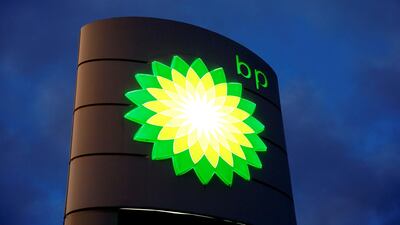All oil companies reinvent themselves but BP makes more noise about it. The company that gave us the modern big oil company model, then “Beyond Petroleum”, now plans to become an “integrated energy company focused on delivering solutions for customers”. Cynics might see this as a distraction from its poor quarterly results but environmentalists and, increasingly, investors see it as the path all petroleum companies must tread.
BP does have a history of transforming itself through crises. Anglo-Persian, a pioneer on the Middle East oil scene, became Anglo-Iranian in 1935, then BP in 1954 after its nationalisation and post-coup return to Iran.
In the late 1970s and early 1980s, a wave of nationalisations reduced the share of Middle Eastern oil in BP’s output from 80 per cent to 10 per cent, as it remained only in Abu Dhabi. This acted as a catalyst for the rise of spot crude trading and the end of the dominant model of vertical integration that John D Rockefeller had invented in the US in the late 1800s.
Along with Shell, BP championed non-Opec oil output in new pastures, but became a “two-pipeline company” that was overly reliant on Alaska and the North Sea.
Chief executive John Browne, appointed in 1995, transformed the company. In August 1998, at a time of record low oil prices, his deal to buy smaller American rival Amoco and create the first “super-major” was a bet on scale and cost-cutting. In April 1999, he also swooped on Arco.
The collapse of the Soviet Union allowed BP to strike the "contract of the century" in Azerbaijan in 1994 and to buy half of Russia's TNK from oligarch owners in 2003, the most successful foray by a western company into the "Wild East".
Lord Browne, as he became in 2001, announced that the company’s iconic initials now stood for “Beyond Petroleum”. BP established an initially successful, if small, solar business but its ventures into the non-oil business were not more significant than those of its peers and its gas position lagged Shell’s.
Still, BP’s rebranding was ahead of its time – too far ahead for its shareholders. The renewable industry in those years was too small and dependent on subsidies. When it did grow, BP Solar lost out to competition from China.
BP has not been Big Oil's green leader recently. From 2010 to 2018, it spent about 2.3 per cent of its capital expenditure on low-carbon energy, mostly biofuels and wind. This was some way ahead of Shell and Equinor, and far surpassed American companies, but was well behind Total’s 4.3 per cent. Additionally, Shell, Total and Saudi Aramco have led recent clean-energy deal-making.
However, new chief executive Bernard Looney has been one of the most outspoken oil leaders on the need to transition to net-zero carbon emissions. Appointed in February, he immediately aimed for BP’s production to be net-zero carbon and to halve the carbon intensity of products it sells by 2050.
In June, the company divested from its petrochemical unit, the precise opposite of what national oil companies in the Middle East have been doing.
BP announced a loss last Tuesday and halved its dividend, while other European peers had small profits and good trading results. But Mr Looney overshadowed the quarterly figures with a decadal goal – to cut oil and gas output by 40 per cent by 2030 and spend $5 billion (Dh18.35bn) annually on low-carbon energy, building 50 gigawatts of renewable energy capacity, almost enough to meet the entire UK’s peak demand.
The business will be reshaped around low-carbon energy (biofuels, renewables, carbon capture and storage and the emerging fuel of hydrogen), as well as mobility (fuel retail, electric vehicles, charging and batteries) and a smaller helping of hydrocarbons.
The shift is unavoidable, given shareholder and government pressure in Europe. But it is also very risky. In the wake of the coronavirus crisis, much lower legacy oil and gas profits will have to fund projects where BP does not have a clear competitive advantage. It will have to invent a business model that is superior not just to other oil companies but also to electricity utilities and others in the new energy space.
Its mobility business is competing in growth markets – China and India - with strong and nationally favoured incumbents. The company must transform profitably in a very fluid and fast-evolving world of new energy technology, falling costs and disruptive shifts in government policy.
Smaller Spanish company Repsol already announced in 2018 that it would not seek to grow its oil and gas output anymore. If other European oil companies follow it and BP, that would mean a hole in new supplies. Even a substantial drop in world oil demand because of climate policies does not remove the need to replace the natural decline of ageing fields.
Without new investment, last year’s 100 million barrels per day of production will fall to about 20 million bpd by 2040, while even in a climate-constrained world, demand will be at least 60 million bpd.
If the gap is not filled, oil prices will rise sharply, probably precipitating an economic slowdown and even more investment in non-oil technology.
More likely, the oil battleground will be contested by American companies ExxonMobil and Chevron, leading national oil companies such as Aramco and Petronas, Chinese and Russian state-owned oil operators and new private-equity backed entities.
Those corporations cannot ignore climate change either, but for now they face less investor and public pressure.
Other European oil companies are envisaging similar transformations and may even be further along in practical terms. But, as often before, BP has been first out of the blocks in articulating its vision. For a company where spin and substance have sometimes been at odds, the most radical shift of its history demands delivery.
Robin Mills is chief executive of Qamar Energy and author of The Myth of the Oil Crisis.


